
Screwball comedy is a film subgenre of the romantic comedy genre that became popular during the Great Depression, beginning in the early 1930s and thriving until the early 1940s, that satirizes the traditional love story. It has secondary characteristics similar to film noir, distinguished by a female character who dominates the relationship with the male central character, whose masculinity is challenged, and the two engage in a humorous battle of the sexes.

Maurice Auguste Chevalier was a French singer, actor, and entertainer. He is perhaps best known for his signature songs, including "Livin' In The Sunlight", "Valentine", "Louise", "Mimi", and "Thank Heaven for Little Girls", and for his films, including The Love Parade, The Big Pond, The Smiling Lieutenant, One Hour with You, and Love Me Tonight. His trademark attire was a boater hat and tuxedo.
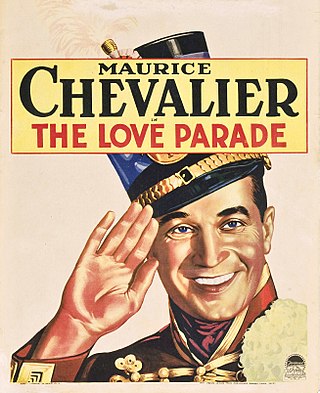
The Love Parade is a 1929 American pre-Code musical comedy film, directed by Ernst Lubitsch and starring Maurice Chevalier and Jeanette MacDonald, involving the marital difficulties of Queen Louise of Sylvania (MacDonald) and her consort, Count Alfred Renard (Chevalier). Despite his love for Louise and his promise to be an obedient husband, Count Alfred finds his role as a figurehead unbearable. The supporting cast features Lupino Lane, Lillian Roth and Eugene Pallette.
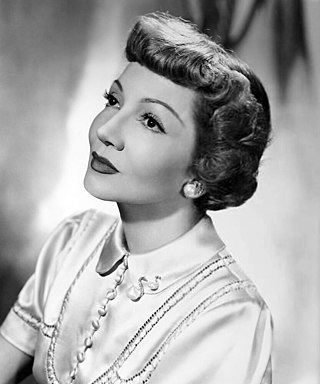
Émilie Chauchoin, professionally known as Claudette Colbert, was an American actress. Colbert began her career in Broadway productions during the late 1920s and progressed to films with the advent of talking pictures. Initially contracted to Paramount Pictures, Colbert became one of the few major actresses of the period who worked freelance, independent of the studio system.

Trouble in Paradise is a 1932 American pre-Code romantic comedy film directed by Ernst Lubitsch and starring Miriam Hopkins, Kay Francis, and Herbert Marshall. Based on the 1931 play The Honest Finder by Hungarian playwright László Aladár, the lead characters are a gentleman thief and a lady pickpocket who join forces to con a beautiful woman who is the owner of a perfume company. In 1991, Trouble in Paradise was selected for preservation by the United States National Film Registry by the Library of Congress as being "culturally, historically, or aesthetically significant".

Ernst Lubitsch was a German-born film director, producer, writer, and actor. His urbane comedies of manners gave him the reputation of being Hollywood's most elegant and sophisticated director; as his prestige grew, his films were promoted as having "the Lubitsch touch". Among his best known works are Trouble in Paradise (1932), Design for Living (1933), Ninotchka (1939), The Shop Around the Corner (1940), To Be or Not to Be (1942) and Heaven Can Wait (1943).
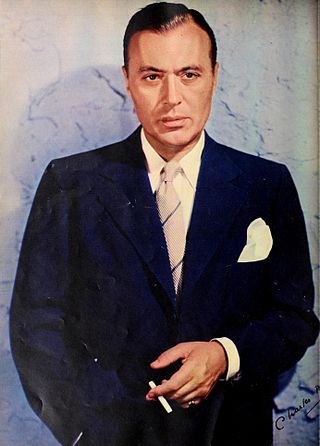
Charles Boyer was a French-American actor who appeared in more than 80 films between 1920 and 1976. After receiving an education in drama, Boyer started on the stage, but he found his success in American films during the 1930s. His memorable performances were among the era's most highly praised, in romantic dramas such as The Garden of Allah (1936), Algiers (1938), and Love Affair (1939), as well as the mystery-thriller Gaslight (1944). He received four Oscar nominations for Best Actor. He also appeared as himself on the CBS sitcom I Love Lucy.

The Big Pond is a 1930 American pre-Code romantic comedy film based on a 1928 play of the same name by George Middleton and A.E. Thomas. The film was written by Garrett Fort, Robert Presnell Sr. and Preston Sturges, who provided the dialogue in his first Hollywood assignment, and was directed by Hobart Henley. The film stars Maurice Chevalier and Claudette Colbert, and features George Barbier, Marion Ballou, and Andrée Corday, and was released by Paramount Pictures.
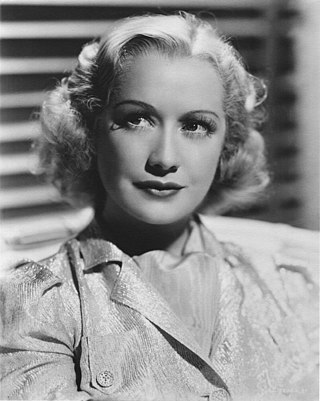
Ellen Miriam Hopkins was an American actress known for her versatility. She signed with Paramount Pictures in 1930.
The House That Shadows Built (1931) is a feature compilation film from Paramount Pictures, made to celebrate the 20th anniversary of the studio's founding in 1912. The film was a promotional film for exhibitors and never had a regular theatrical release.

Ein Walzertraum is an operetta by Oscar Straus with a German libretto by Leopold Jacobson and Felix Dörmann, based on the novella Nux, der Prinzgemahl by Hans Müller-Einigen from his 1905 book Buch der Abenteuer.

B. P. Schulberg was an American pioneer film producer and film studio executive.
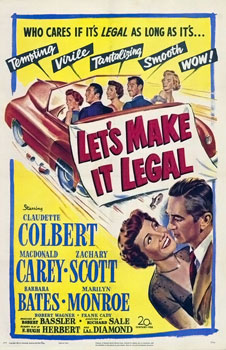
Let's Make It Legal is a 1951 American comedy film made by 20th Century-Fox, directed by Richard Sale and produced by Robert Bassler from a screenplay by I.A.L. Diamond and F. Hugh Herbert, based on a story by Mortimer Braus entitled "My Mother-in-Law, Miriam". The music was by Cyril J. Mockridge and the cinematography by Lucien Ballard.

Bluebeard's Eighth Wife is a 1938 Paramount Pictures American romantic comedy film directed and produced by Ernst Lubitsch and starring Claudette Colbert and Gary Cooper. The film is based on the 1921 French play La huitième femme de Barbe-Bleue by Alfred Savoir and the English translation of the play by Charlton Andrews. The screenplay was the first of many collaborations between Charles Brackett and Billy Wilder. The film is a remake of the 1923 silent version directed by Sam Wood and starring Gloria Swanson.

Arise, My Love is a 1940 American romantic comedy film directed by Mitchell Leisen and starring Claudette Colbert, Ray Milland and Dennis O'Keefe. It was made by Paramount Pictures and written by Billy Wilder, Charles Brackett and Jacques Théry. Containing an interventionist message, it tells the love story of a pilot and a journalist who meet in the latter days of the Spanish Civil War and follows them through the early days of World War II. Colbert once said that Arise, My Love was her personal favorite motion picture of all the films she had made.

The Paramount Theatre is a historic theater located at 17 South Street in Middletown, New York, United States. It was built in 1930 in an Art Deco style, a twin to the Paramount Theater in Peekskill, across the Hudson River. It was included in the National Register of Historic Places in 2002.

The Story of Temple Drake is a 1933 American pre-Code drama film directed by Stephen Roberts and starring Miriam Hopkins and Jack La Rue. It tells the story of Temple Drake, a reckless woman in the American South who falls into the hands of a brutal gangster and rapist. It was adapted from the highly controversial 1931 novel Sanctuary by William Faulkner. Though some of the more salacious elements of the source novel were not included, the film was still considered so indecent that it helped give rise to the strict enforcement of the Hays Code.
Hollywood on Parade (1932–1934) is a series of short subjects released by Paramount Pictures.
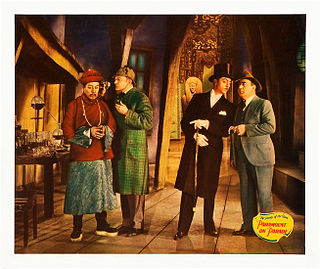
Paramount on Parade is a 1930 all-star American pre-Code revue released by Paramount Pictures, directed by several directors including Edmund Goulding, Dorothy Arzner, Ernst Lubitsch, Rowland V. Lee, A. Edward Sutherland, Lothar Mendes, Otto Brower, Edwin H. Knopf, Frank Tuttle, and Victor Schertzinger—all supervised by the production supervisor, singer, actress, and songwriter Elsie Janis.

Design for Living is a 1933 American pre-Code romantic comedy film directed by Ernst Lubitsch from a screenplay by Ben Hecht, based on the 1932 play of the same name by Noël Coward. Starring Fredric March, Gary Cooper, and Miriam Hopkins, the film is about a woman who cannot decide between two men who love her, and the trio agree to try living together in a platonic friendly relationship.


















